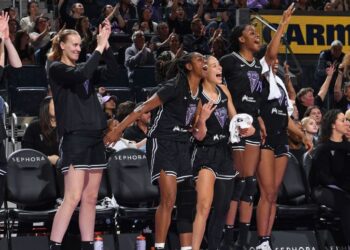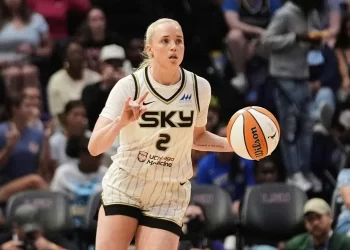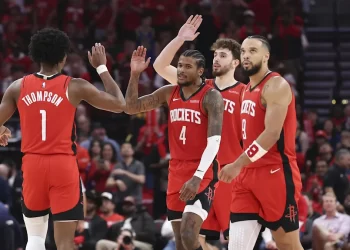By: Zachary Draves
Last week went according to plan as a Russian court denied WNBA legend Britney Griner’s appeal after she was convicted and sentenced to nine years for drug smuggling. She was detained for possession of less than 1 gram of cannabis oil in February and thus a continuing international saga began.
Since then a campaign calling for her to be released has continued to grow exponentially in the sporting community and beyond. Since the conclusion of the WNBA season in September and a so far lack of tangible progress in the ongoing negotiations with Russia, there may be a perception that Griner’s case has fallen by the wayside. In other words, it is not as urgent to talk about as it was at one convenient time.
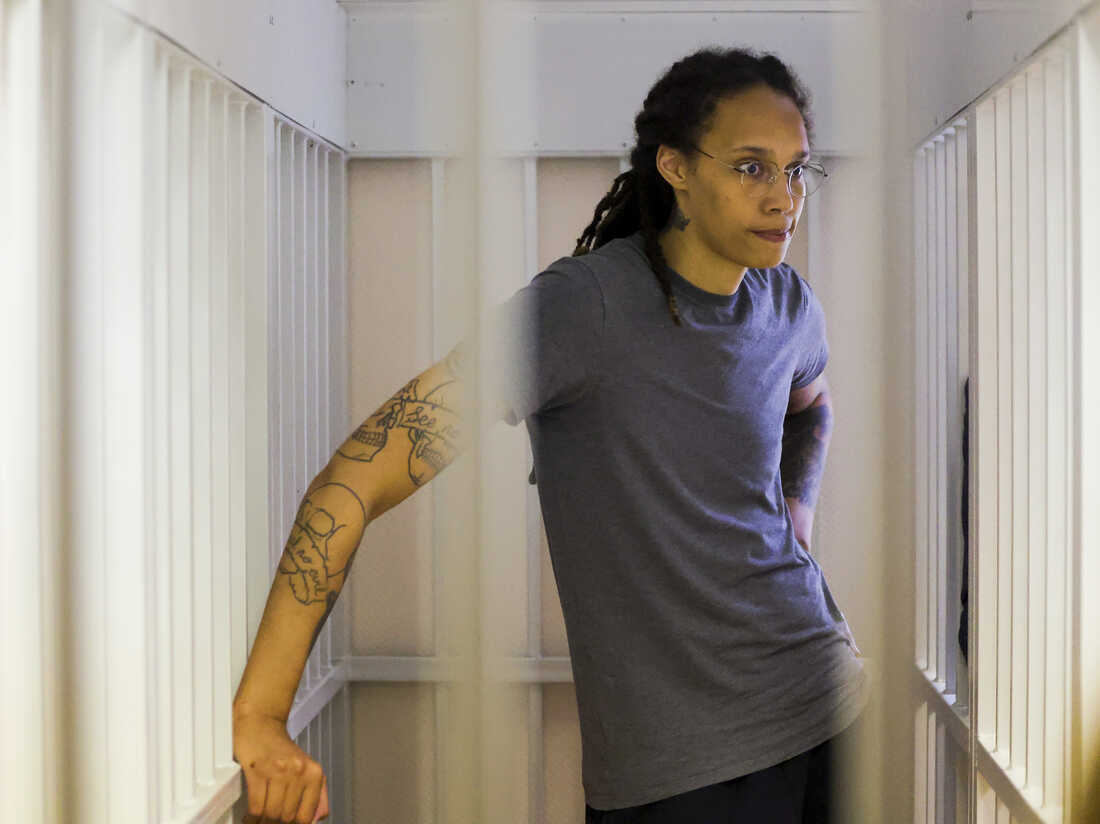
(Courtesy: Evgenia Novozhenina/AP)
However, despite our short term memory within the context of the media cycle, the need to up the ante when it comes to securing Griner’s release is more needed than ever. Simply because she went through arguably a sham trial, was convicted, lost her appeal, and now the negotiations can be front and center. This is the perfect time for the movement to grow in stature and prominence and broaden its reach to ensure the end result of her coming home.
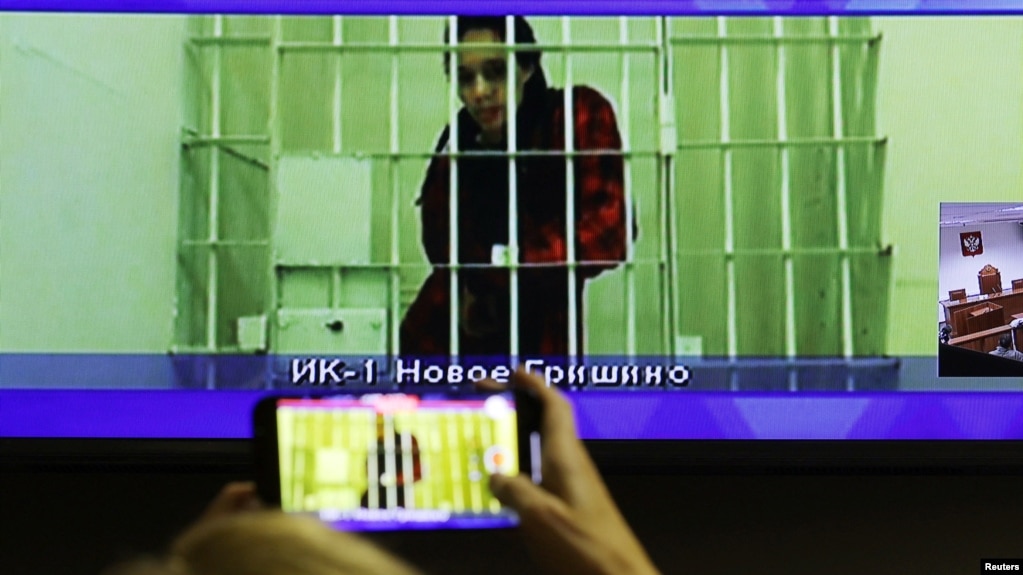
(Courtesy: Reuters)
If people took the time to understand the history of social movements, they would realize the effectiveness of strength in numbers. The more getting involved on the ground mobilizing and organizing the greater chance it is for those in power to budge at the pressure. When looking at the Civil Rights, Women’s Liberation, Gay Rights and the Anti-War Movements, it took mass numbers of people willing to put themselves on the line in an unapologetic and uncompromising fashion and in many ways it worked.
The same needs to happen here.
Originally it was the WNBA that took up the mantle for their sister for obvious reasons. She is an icon of the league and was instrumental in helping to grow the game beyond our shores and even into hostile territories like Russia where among the people she is held in high regard. However, it shouldn’t be the sole burden of the world of women’s basketball to lead the charge because if it was solely up to them she would be free. It needs to be incumbent upon other American sports leagues and athletes to lend their platform.
So far the NBA and NWSL have each done something small but tangible to amplify Griner. On the NBA’s opening night, Stephen Curry gave a speech after the Warriors championship ring ceremony highlighting her circumstance on what was her 32nd birthday. Last weekend during the NWSL championship, Griner’s name was everywhere. The hashtag We Are BG popped up on Twitter and her official campaign set up a table at the game where fans came to write a letter to her expressing well wishes.
(Courtesy: Twitter/Getty Images)
An excellent showing of solidarity to be sure but there needs to be more.
If anything, as the negotiations go on, there should be an increased effort at isolating Russia from the sporting world in the same way that was done to South Africa during Apartheid.
Since the days of the Cold War, Russia has used and abused sport for its own geopolitical purposes. During the reign of the old Soviet Union, sport was a government run institution with the intent to prove the superiority of their system through the arena of athletics. While some of those fractions have frayed since the official collapse of the Soviet Union in 1991, the old repressive tactics are very much in place and have only been intensified by Vladimir Putin, culminating in the Russian invasion of Ukraine earlier this year.
That plus the detention of Griner and fellow American Paul Whelan has made Russia the justifiable target for worldwide condemnation.
Victoria York, Deputy Executive Director for the National Black Justice Coalition, has been consulting with the State Department since Griner’s detainment. She has been a regular contributor to NBS on this case and she said in a recent email interview that athletes across the globe should take advantage of this opportunity to send Russia a strong message.
“Athletes around the world must raise their voices at the horrible precedent this sets for international competitions such as the Olympics, Euro League basketball, the FIFA World Cup, and the World Games,” she said. “If this can happen to an athlete as beloved by the Russian people and her teammates as Brittney, it could really happen to anyone.”
She then adds that Russia has much more to gain by actively participating in the process of ensuring Griner’s freedom
“As a nation that loves athletics as much or even more than Americans, it is in the Russian government’s best interest to pardon Brittney or make a deal – or else it won’t only be Americans no longer interested in competing on behalf of or in Russia but the entire global sporting community.”
So far Breanna Stewart, who played alongside Griner for UMMC Ekaterinburg in Moscow, Jonquel Jones, Courtney Vandersloot, and Emma Meeseman have all opted out of playing in Russia during the WNBA offseason.
The last time Russia hosted a global sporting event was the 2014 Winter Olympics in Sochi which occurred right after the Russian invasion of Crimea. Putin’s actions and policies especially on LGBTQ+ rights was a major reason why there was tremendous pushback at him using the old tactic of “sportswashing” to cover for his atrocities.
Things have only gotten worse since then and for many the wrongful detainment of Brittney Griner is the tip of the iceberg.
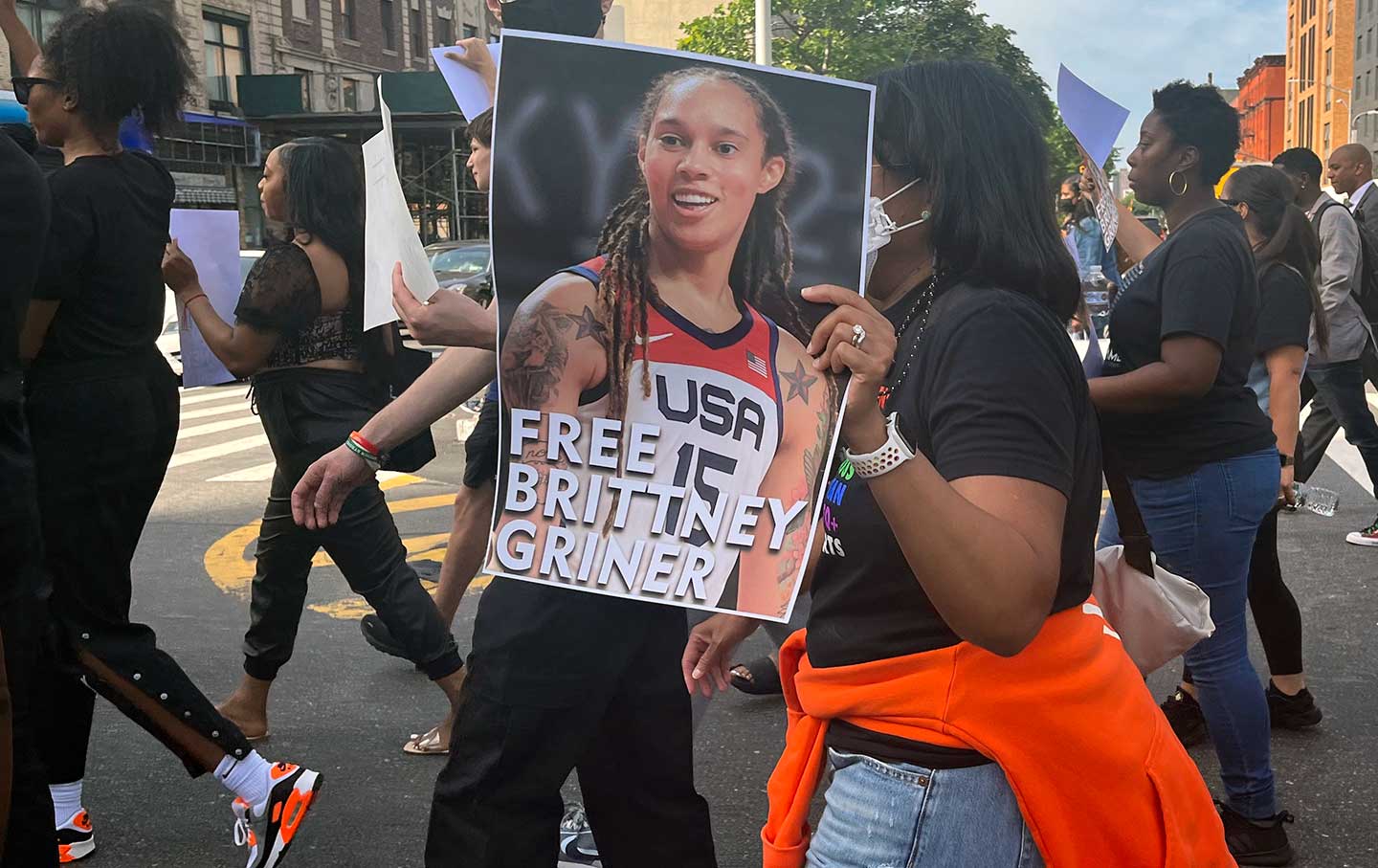
(Courtesy: Sophie Hurwitz)
So the news cycle will continue and the next big distraction will be upon us sooner rather than later. But in our digitally advanced age it shouldn’t be difficult to keep up with the fact that an innocent American citizen who represented her country on the world stage with sheer dynamism and vitality has been detained in a foreign country and deserves to be home.
The pressure needs to be turned up and should not waiver. Until then it cannot be said enough:
#FreeBritneyGriner


 NFL
NFL

